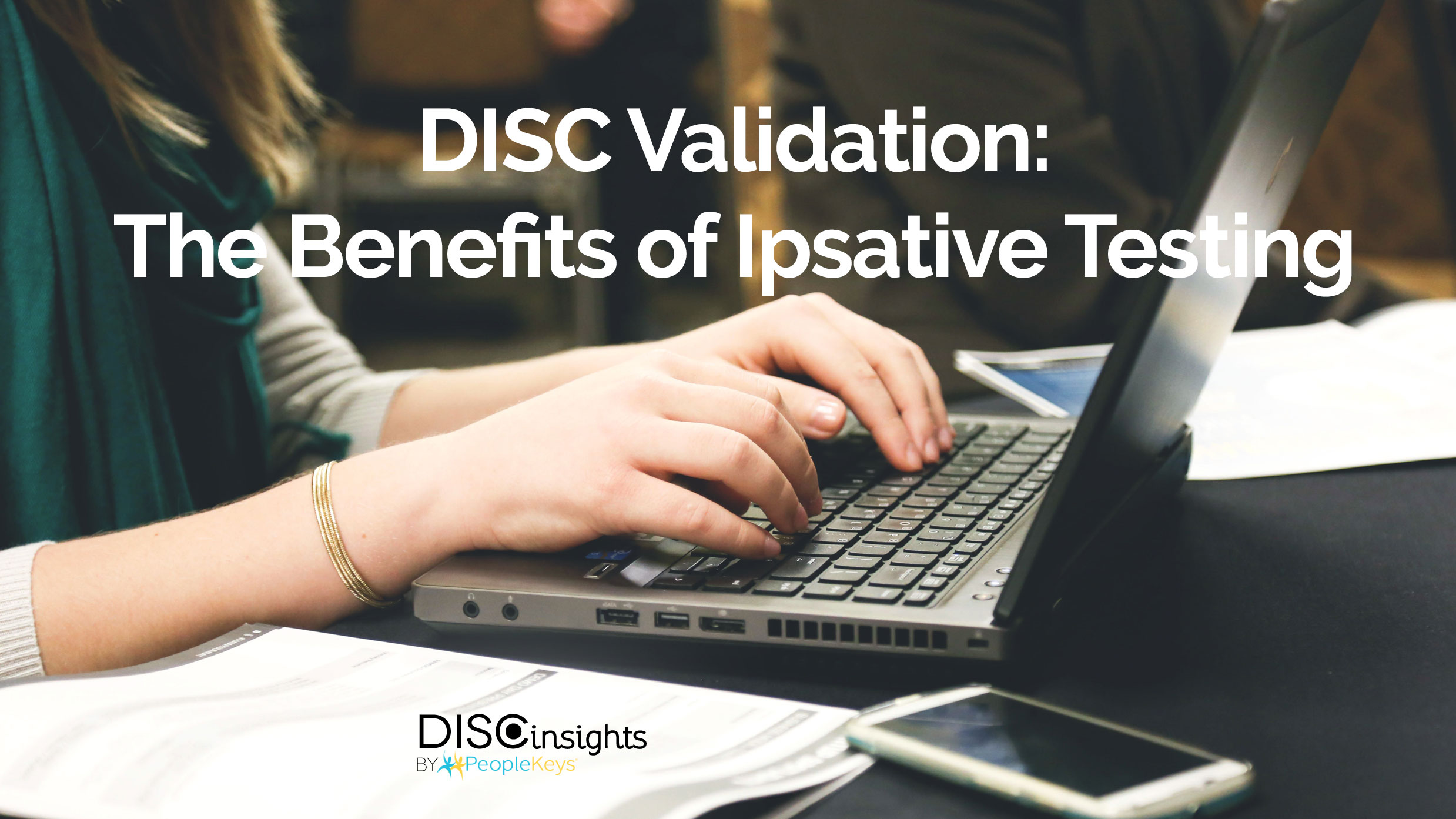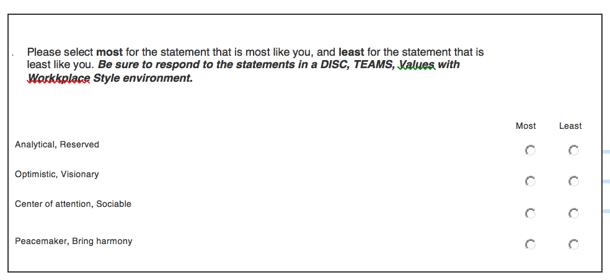- SHOP BY PRODUCT
- DISC TRAINING & CERTIFICATION TOOLS
- DISC RESOURCES
- BLOG
- SHOP BY PRODUCT
- DISC TRAINING & CERTIFICATION TOOLS
- DISC RESOURCES
- BLOG
- ALL ITEMS



When we create our DISC personality tests, our #1 priority is to ensure that the tests we offer are reliable and accurate. In order to make sure that you receive the best possible assessment of your personality style and style blend, we’ve put a great deal of thought, research, and testing into how our DISC questionnaires are constructed. To ensure the highest degree of accuracy possible, our DISC tests use a method known as an “ipsative testing.”
 As a contrast, an alternative model of testing is called “normative” testing. A normative test is a “sliding scale” model, where test-takers are asked to rank their responses based on degree of personal preference. An example of a normative question would be:
As a contrast, an alternative model of testing is called “normative” testing. A normative test is a “sliding scale” model, where test-takers are asked to rank their responses based on degree of personal preference. An example of a normative question would be: Over time, there has been much debate over the value of ipsative vs. normative testing. Research done by PeopleKeys and many other outside agencies suggests that personality testing done with an ipsative model is more reliable and effective. Primarily, ipsative testing is preferred because ipsative tests do not encourage “faking.”
Over time, there has been much debate over the value of ipsative vs. normative testing. Research done by PeopleKeys and many other outside agencies suggests that personality testing done with an ipsative model is more reliable and effective. Primarily, ipsative testing is preferred because ipsative tests do not encourage “faking.”When it comes to personality tests, ipsative tests don’t stack the deck in the way that normative tests often do. With an ipsative test, you simply identify statements that are “most accurate” and “least accurate” in terms of everyday behavior. All of the options are equally positive, just different ways of expressing personality. In an office environment, is it better to be sociable? Optimistic? Analytical? A peacemaker? You can see by looking at the ipsative question that it’s easier to be honest, since the personality traits are all beneficial.
That kind of honesty is important to encourage, especially in personality testing. Personality types are different from each other, each with their own set of unique strengths. Finding ways for different personality types to succeed in a given environment is the goal of DISC. The more accurately we can pinpoint your personality style blend, the better.
In addition, the binary forced-choice system of ipsative testing is thought to more closely mirror the way that we actually think about ourselves. This makes the test-taking experience fun, easy, and far less frustrating than attempting to impose an artificial sliding scale onto your personality traits.
There are more complexities to the differences between ipsative and normative testing, and mountains of research to be digested. But, we hope this gives you a bit of insight into the choices we make when we construct our tests. Behavioral analysis is a field guided and informed by science, and the choices we make are all done with the goal of producing the best testing instrument possible.
Curious to learn more about DISC and how to apply it for coaching, consulting or hiring? Become a Certified Behavioral Consultant and join an army of experts in DISC.

© PeopleKeys. All Rights Reserved
WORKING DAYS/HOURS
Mon - Fri / 8:30AM - 5:00PM EST
